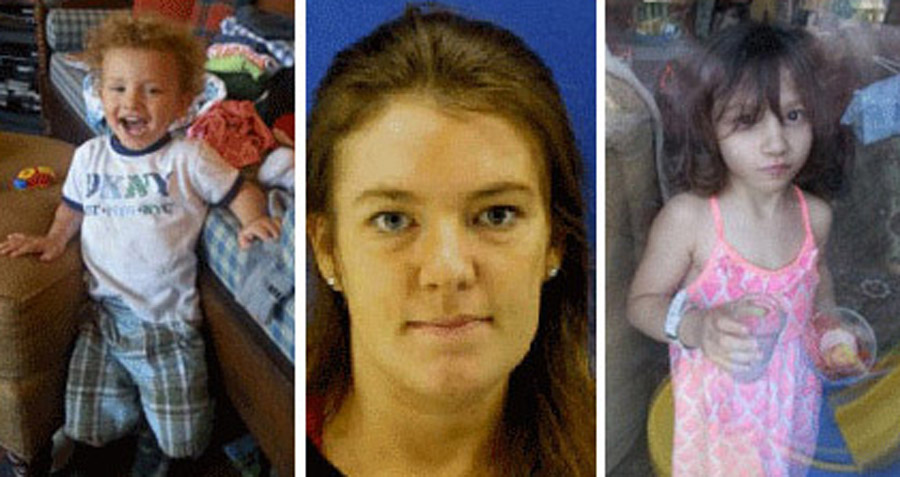Maryland’s Court of Special Appeals heard arguments Monday over whether a Montgomery County judge erred in failing to dismiss murder charges against Catherine Hoggle, whose two young children disappeared more than six years ago.
Hoggle was arrested in September 2014. She was the last person to see her children, 3-year-old Sarah and 2-year-old Jacob, alive. Hoggle was initially charged with three misdemeanors related to her missing children, and then indicted in September 2017 on murder charges.
With a long history of mental health issues before her arrest, Hoggle was first found incompetent to stand trial in January 2015.
After eight competency reviews — each finding her not competent to stand trial, unable to assist in her own defense and dangerous — as a three-year deadline to prosecute misdemeanors neared, Montgomery County prosecutors dropped the counts, and indicted Hoggle for her children’s murders in September 2017.

On the five-year anniversary of Hoggle’s first incompetency filing, defense attorney David Felsen filed a motion saying her murder charges must be dismissed.
Last February, Montgomery County Circuit and County Administrative Judge Robert Greenberg sided with county prosecutors that the five-year clock began when Hoggle was indicted in 2017, and the deadline to dismiss charges wouldn’t occur until 2022.
Hoggle appealed last July, and her circuit court case was stayed, pending the appeal court’s ruling.
In a virtual hearing before Court of Special Appeals Judges Andrea Leahy, Christopher Kehoe and Kevin Arthur, Felsen argued that despite different charges in different courts, prosecutors in Montgomery County State’s Attorney John McCarthy’s office were attempting to game the legal system.
“Mr. McCarthy stated several times he knew this case was never going to be tried in District. He said as soon as she’s found competent, we are going to indict her for murder. The plan was always for murder, to use the tactical tool of the grand jury,” Felsen told the panel.
Asked by Kehoe why the state waited so long to indict Hoggle, “once it became clear, since it seemed to be clear from the word go,” that prosecutors believed she killed her children, assistant attorney general Jer Welter, arguing for the state, agreed: “The reason was to preserve the integrity of the investigative tool of the grand jury.”
The justices will issue a written opinion in coming weeks.
Hoggle, who was diagnosed with paranoid schizophrenia, has been receiving treatment at Clifton T. Perkins Hospital, Maryland’s state psychiatric hospital.








